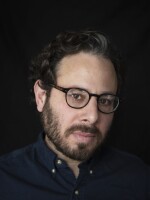Everything about the New York City mayor's race is supersized.
No less than a dozen candidates are vying to succeed Michael Bloomberg as leader of the nation's biggest city — five Republicans and seven Democrats. The candidates have appeared at more than 100 forums and debates, and the primary is still two months away.
Observers say that the crowded field could favor big personalities.
"The primary may well come down to personality, as opposed to substance," says Kenneth Sherrill, an emeritus professor of political science at Hunter College who has watched every New York mayoral primary since 1961.
"Personality is easy for the voter to understand," Sherrill adds. "Issues are complex and difficult. So emphasizing personality is frequently a wise strategy, if not good for democracy."
The leading Democratic candidates seem to be heeding that advice.
City Council Speaker Christine Quinn recently published With Patience and Fortitude, a memoir of her struggles with bulimia and alcoholism. "It's not a political book," she said in an interview last month with CBS This Morning. "That was purposeful. I want to talk about who I am personally and how I got here."
If she wins, Quinn would be the city's first openly gay mayor. She was considered the early front-runner. But lately, her poll numbers have been slipping. And that may have a lot to do with the deal Quinn struck to overturn the city's term-limits law, allowing Bloomberg to win a third term in 2009.

"The third term is hanging around her neck," says Christina Greer, assistant professor of political science at Fordham University. "[Quinn] has essentially been branded with the mantle of 'You are Bloomberg's mini-me, and you made the third term happen,' " Greer says. "I don't think that that's necessarily 100 percent of the story. But that is the narrative that's attached to her that she just can't shake."
Quinn's slide in the polls has coincided with the rise of another big personality: former U.S. Rep. Anthony Weiner. The married Weiner resigned after tweeting lewd pictures of himself to other women and then lying about it.
Weiner has gotten a lot of attention since he jumped into the race in May, though he acknowledges that some voters will never trust him again.
"I completely understand it," Weiner said in an interview with local TV station PIX 11. "But even for those people, even for the people who say, 'You know what, Weiner, I never want to vote for you again,' I even want them to read my ideas and think about what they want in the next mayor."
That next mayor might just turn out to be Weiner: One recent poll shows him leading the Democratic field; another has him running second to Quinn.
And there's a third Democrat who's mounting a serious charge.

Former city Comptroller Bill Thompson has racked up some major endorsements, including one earlier this week from the Transport Workers Union.
"These are the working, middle-class New Yorkers who continue to be squeezed each and every day," Thompson said after accepting the endorsement. "And we need to stand with them to make sure that this city continues to bounce back for all New Yorkers."
Thompson would be the city's first African-American mayor in a generation. He won the Democratic nomination four years ago, but he's running a distant third this year.
It's unlikely that any of the Democratic hopefuls will get enough votes on Sept. 10 to avoid a runoff election. That means the top two finishers will probably face off again in early October. Many observers believe that the eventual Democratic nominee has a good chance of winning in November.
And Hunter College's Sherrill expects a big fight to the finish. "The mud will be flowing; blood will be splattering," he says. "It'll be great fun."
Copyright 2020 NPR. To see more, visit https://www.npr.org. 9(MDA4MzM1MjM1MDEzMTg5NTk0MzNmOTQ5MA004))



